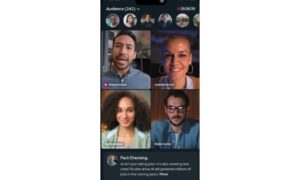Diabetes management has relied on finger-prick blood glucose testing and continuous glucose monitors (CGMs) for decades. While effective, these methods pose financial, accessibility, and comfort challenges for millions worldwide. Max Kopp, a 17-year-old researcher, is exploring whether AI-driven noninvasive glucose monitoring technology could reshape diabetes care by eliminating these long-standing issues.
“Too many diabetes patients face unnecessary hurdles—painful pricks, high costs, and limited accessibility. If we can eliminate these, why wouldn’t we?” Kopp asks.
At just 17 years old, Kopp is conducting research in nanotechnology, AI-driven biosensors, and biomedical engineering to assess whether these advancements could lead to a more patient-friendly and efficient solution for glucose tracking. His work focuses on developing a non-invasive, machine-learning-enhanced glucose monitoring system to provide an alternative to painful finger pricks.
The Science Behind Non-Invasive Glucose Monitoring
Kopp’s research examines an advanced nanomaterial-based biosensor that leverages polarized light interactions with glucose molecules. Unlike traditional CGMs that require implantation or adhesive patches, this wearable, flexible biosensor detects glucose levels through the skin without any punctures. A key area of investigation is how AI-powered analytics could refine the system’s accuracy.
By integrating machine learning algorithms, Kopp’s system is designed to calibrate itself based on an individual’s unique physiology, adapting to factors like hydration levels, skin thickness, and temperature variations that often lead to inaccuracies in traditional glucose monitoring. The system seeks to continuously improve its precision over time, potentially offering new insights into non-invasive glucose monitoring.
“We’re leveraging AI and nanomaterials to bring diagnostics into the modern era. The future of diabetes care should be seamless, real-time, and affordable.”
Why This Matters: The Cost and Accessibility Crisis in Diabetes Management
According to the World Health Organization, nearly 537 million people worldwide live with diabetes, and this number is projected to rise. Yet, the accessibility of current monitoring solutions remains a significant issue. Traditional CGMs like Dexcom G6 and Abbott’s FreeStyle Libre cost hundreds to thousands of dollars annually, making them inaccessible to many individuals needing them most.
Additionally, finger-prick testing remains the standard for those who cannot afford CGMs. This method can be painful and prone to user error, skipped tests, and inconsistent tracking. Kopp’s research aims to explore whether AI-driven biosensors could provide a cost-effective, comfortable, and highly accurate alternative for glucose monitoring.
Machine Learning’s Role in Redefining Diabetes Care
One of the biggest challenges in non-invasive glucose monitoring has been accuracy. Non-invasive CGMs have struggled to achieve the precision required for medical decision-making.
Kopp’s research explores whether machine learning-enhanced biosensors could offer a system that adapts to the individual user. The AI component is designed to learn patterns in glucose fluctuations, adjusting for physiological variations and environmental factors. This continuous adaptation could improve real-time data analysis, allowing for more reliable glucose monitoring. By making the system adaptive and self-learning, this research intends to contribute to ongoing discussions on how AI-driven biosensors might offer alternatives to traditional blood glucose monitoring.
Max Kopp’s early work has not gone unnoticed. In 2025, he was named to Philly Inno’s 25 Under 25, a recognition awarded to young innovators whose research and entrepreneurship are reshaping their industries.
The Market Disruption: Assessing the Potential Impact on Medical Technology
Vitasense’s AI-driven glucose monitoring solution is part of a broader movement in med-tech innovation. The development of such systems could introduce new challenges and considerations for existing CGM manufacturers like Dexcom, Abbott, and Medtronic.
Stakeholders in the healthcare industry are closely monitoring advancements in non-invasive biosensor technology. If regulatory approval is pursued, AI-driven glucose monitoring systems could emerge as a new standard in diabetes care.
“Healthcare technology must be both innovative and accessible. My research is focused on understanding how new advancements can reshape diabetes management.”
The Future of Non-Invasive Glucose Monitoring
Max Kopp’s research into machine-learning biosensors is part of a larger conversation about the future of diabetes management. With AI enabling real-time glucose tracking to become more precise and personalized, the potential for non-invasive monitoring continues to capture attention across the med-tech field.His efforts are not only forward-thinking but also gaining recognition from some of the most respected institutions in science.
In March 2025, Kopp was awarded the Naval Science Award by the Office of Naval Research (ONR) at the MCSRC Science Fair—a distinction presented by the U.S. Navy and Marine Corps to students demonstrating exceptional work in STEM. The award was accompanied by a personal letter from Rear Admiral Kurt J. Rothenhaus, Chief of Naval Research, acknowledging the impact and promise of his research.
As development continues, healthcare innovators and regulators closely watch whether technologies like Kopp’s can help shape a future where diabetes care is more innovative, accessible, and pain-free.
For more information, visit www.MaxKoppTech.com



































